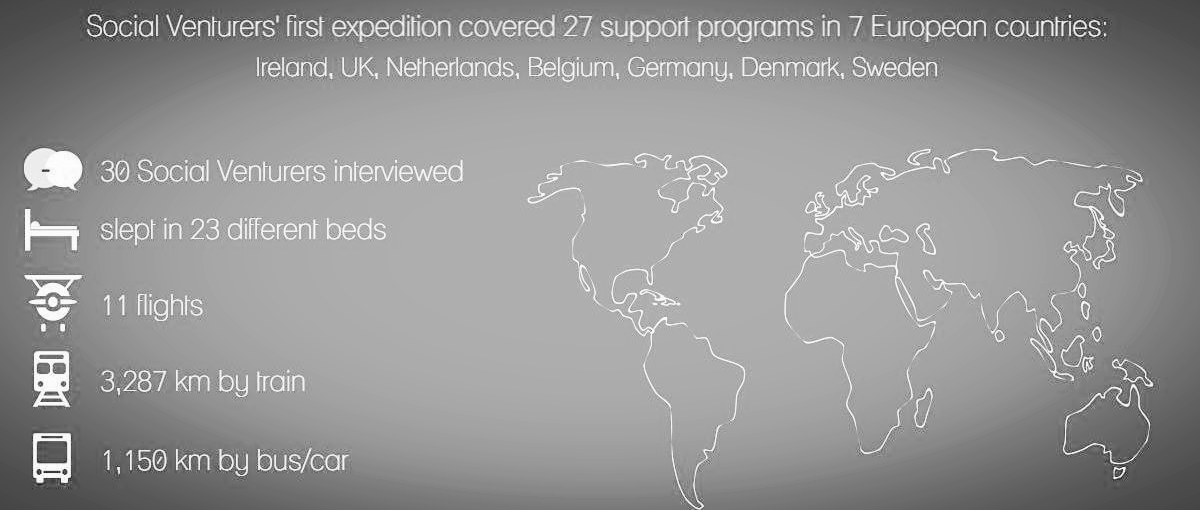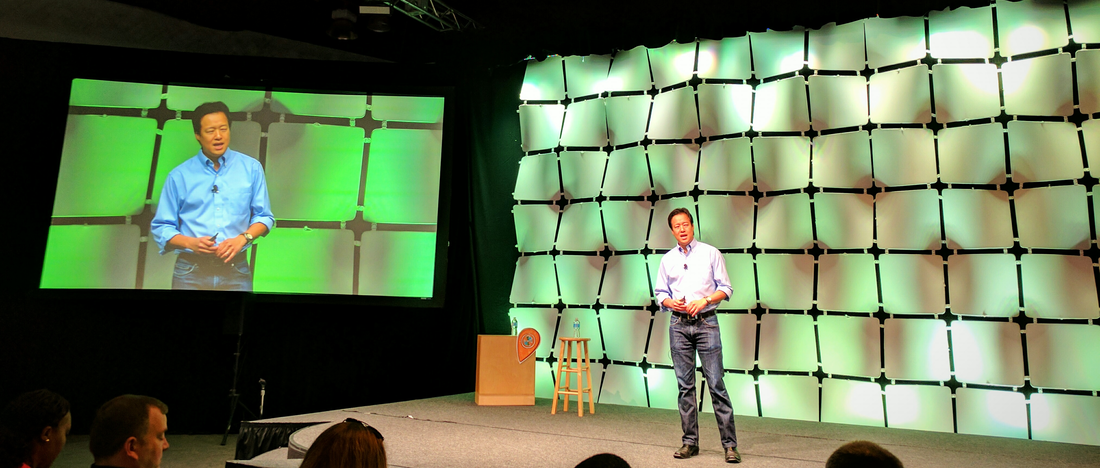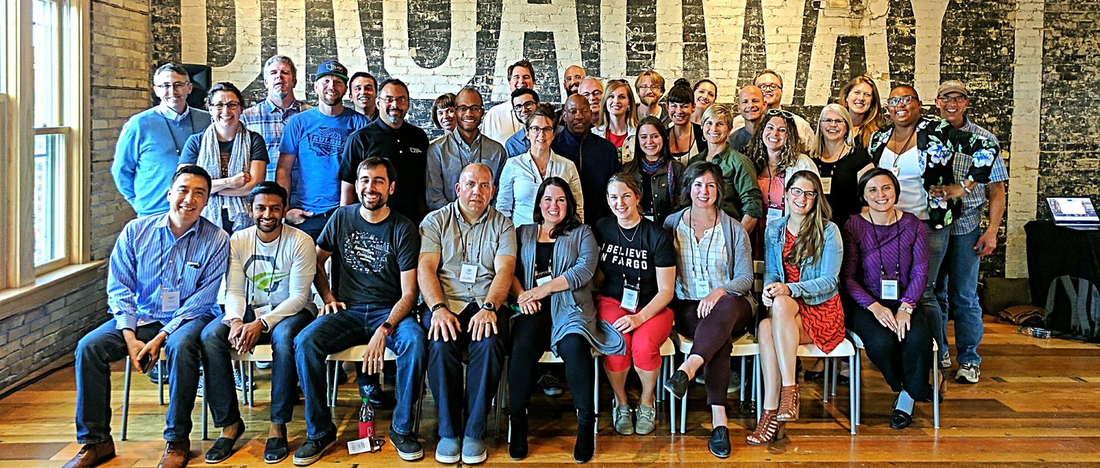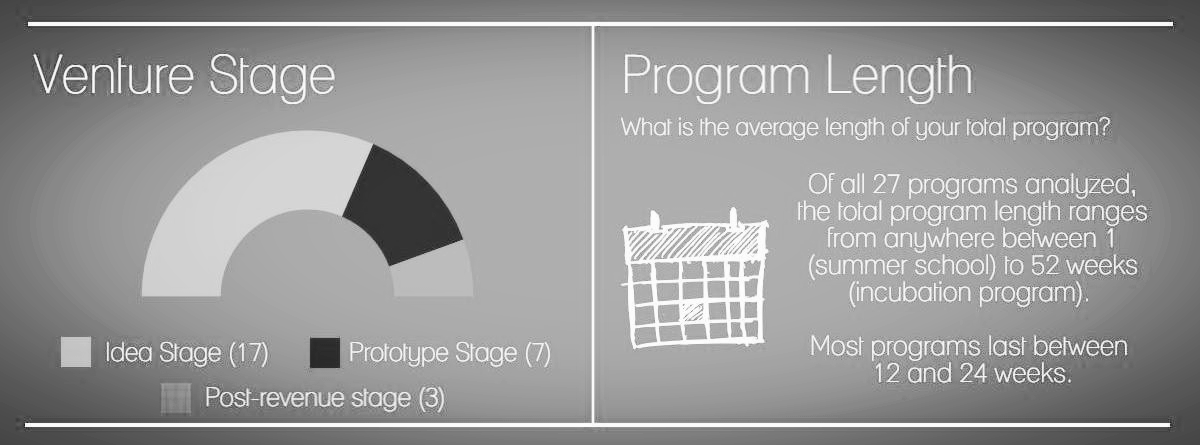|
“The essence of an entrepreneurial ecosystem is its people and the culture of trust and collaboration that allows them to interact successfully. The ecosystem allows for the fast flow of talent, information, and resources so that entrepreneurs can quickly find what they need at each stage of growth.” Ewing Kauffman Foundation Sounds pretty straight-forward, doesn’t it? Those of us who work to see purpose-driven entrepreneurs thrive like to think that we collaborate for the greater good, that we put entrepreneurs front and center of our efforts, and most definitely don’t feel threatened by other programs that may have more funding, better mentors, hipper workspaces, more promising founders. Or do we? I hate to be the one breaking this to you, but humans are competitive by nature. As Hwang and Horowitt explain in The Rainforest: “...remnants of our primitive past make human beings wary of one another.[...] Innovative behavior is generally so risky and unrewarding that it does not make rational sense in most cases. As a result [...] forces that push people apart are far stronger than the forces that pull them together.” In short: Overcoming our own bias of collaborating with others is incredibly hard. Collaboration and successful interaction - the key ingredients for a culture of trust - take a lot of self-discipline and requires us to push ourselves out of our own comfort zones. All the time. In essence, we have to consciously work against our instincts to help nurture ecosystems. And that gets messy quickly. War stories on the cutting room floor During my first six months living in Toronto, Canada, I set out to interview actors in the social enterprise and social innovation space. My intention was to get a sense for what was happening in the ecosystem, learn who the key players were, what challenges they were facing and what trends they were seeing (take a look at my research approach here). Thanks to several years of working in ecosystem building and being familiar with the most common frameworks, I was going to gather all the information for a complete framework of the social impact ecosystem. And after 30 interviews using the same questionnaire, I was at a complete loss. The stories I heard varied so greatly that I sometimes wondered whether we were talking about the same Toronto. Which goes to show how complex and messy this business of ecosystem building is. I have participated in, and seen the results of, a number of ecosystem studies and analyses. After weeks of thorough stakeholder consultation and economic development data analysis, the presenter was able to produce a report that scored the maturity of the ecosystem on a scale from one to ten; he did the same for talent, mentorship, funding accessibility… you get the picture. What I have found through my own research in Toronto is that there is so much more to it. Data tells only part of the story. And if you try to deduct general conclusions from dozens or even hundreds of interviews, there is a lot of information that ends on the cutting room floor. I have come to believe, however, that it is these personal experiences and stories that reveal the key to that helps us become better at what we do at the level of an individual ecosystem builder. Organizations like the Kauffman Foundation, Startup Champions Network and InBIA do a formidable job recognizing and analyzing macro-trends, communicating best practices and creating tools and platforms for the field of ecosystem building. If you haven’t yet, head over to their websites, subscribe to their newsletters, get your head in their game! Diving deep My quest, however, takes me to the very micro-level of the individual ecosystem builder (Social Venturer) who works to create and deepen the positive social impact of purpose-driven entrepreneurs in her/his/their community. I am curious to hear about the good, the bad, and the ugly of this Sisyphean task. What is working? What is frustrating? And what does success look like for a dedicated ecosystem builder? Too many times I have witnessed politics, culture, mindset, and interpersonal histories within a community stifle progress for the greater good. And while - as ecosystem builders - we strive to operate above such grievances and frustrations, they are part of our everyday work and therefore, deserve to be brought to light. For a first taste of such stories, head here! I want to peek under the hood of ecosystem building for social impact and peel back the layers of stories that tell us more about the characteristics, skills and experiences of competent, effective ecosystem builders. This time, I am not setting out with the goal of finding best practices (which I did for Social Venturers). On the contrary, I am on the hunt for war stories; stories about struggles, failures and hardships of the modern day ecosystem builder who aspired to drive social change. If this is you, get in touch! The deets
Let’s be honest, ecosystem building still is very nascent and even more nebulous of a term (for a collection of definitions from practitioners, read this recent post by fellow Startup Champion Jeff Bennett). Therefore, I am steering my curiosity toward ecosystems for, by and around purpose-driven entrepreneurs. Purpose-driven entrepreneurs is a term I use to describe entrepreneurs who pursue both profit and a positive impact (social and/or environmental). That includes social business after Muhammad Yunus, certified B Corps and social enterprises. I do not conflate it with nonprofits or charities, nor with companies that attach CSR activities to their otherwise unsustainable main business (as noble as these efforts may be). (Social) Innovation: Innovation, and social innovation in particular, are incredibly exciting topics when it comes to solving some of humanity’s biggest challenges. While I agree that tackling long-persisting challenges in new ways is a great approach to solve hard problems, I am not solely focusing on innovation ecosystems. Thanks to my work as a B Corp community builder, I have experienced first hand what simple measures existing small- and medium-sized companies can take to use their business as a force for good. Paying a living wage, recycling office waste and training teams of culture diversity is a far cry from innovative. It’s good business practice. Startups: I absolutely love working with startups and have done so for many years. But to my earlier point, you don’t have to be or work with startups to create a positive social or environmental impact. In short, I am interested in exploring the world of individuals who - in some meaningful capacity - work with purpose-driven entrepreneurs and nurture an ecosystem in which they can thrive. Jumping off a cliff, one step at a time … if only that was a thing! This next chapter of Social Venturers feels like jumping off a cliff with no idea what I will be landing in or how long the journey to impact will be. It’s all I can do to not hold my breath and stiffen my body. Because if I have learned one thing in self-managing long-term research projects, it’s that they succeed one tiny step at a time. But you have to keep at them and make something happen. Consistently. I have lined up my first interviews with ecosystem builders for social change and am constantly reaching out to more. In parallel, I am combing through academic literature, blog posts, white papers etc. while exploring neighboring academic fields to see whether they are relevant to my research. How can you help? I am so glad you asked! If you work in this field, or know someone who does and think you can contribute, then by all means, please reach out! There is a lot I don't know, the world of ecosystem building is big and sometimes overwhelming so if you know about organizations and ongoing research in this field that I should be aware of, let me know! More so, I myself will benefit from a community of like-minded ecosystem builders, researchers and startup champions who are passionate about social impact and purpose-driven entrepreneurship. If there is one thing I have learned from my solo research adventure Social Venturers, it's that these explorations are so much more fruitful if you don't do them alone. I am looking for values-aligned partners who work in the field of ecosystem building for social impact and are keen to further collective knowledge in the field, professionalize the occupation and build deeper ties among ecosystem builders. If none of this is the case, but you're still thinking "But I want to do something!": I am always looking for cheerleaders and awesome individuals who are interested in working on great ideas. So, if you're awesome, a hard worker and keen on rolling up your sleeves, we will make it happen! Get in touch!
0 Comments
Leave a Reply. |
AuthorObservations from living the life of a Social Venturer Archives
January 2019
Categories
All
|
Company |
Sign up for Tacheles
|
Legalese
|
© COPYRIGHT 2017. ALL RIGHTS RESERVED.
|





 RSS Feed
RSS Feed